8 Ultra-Processed Foods That Are Actually Good for You, Nutritionist Says
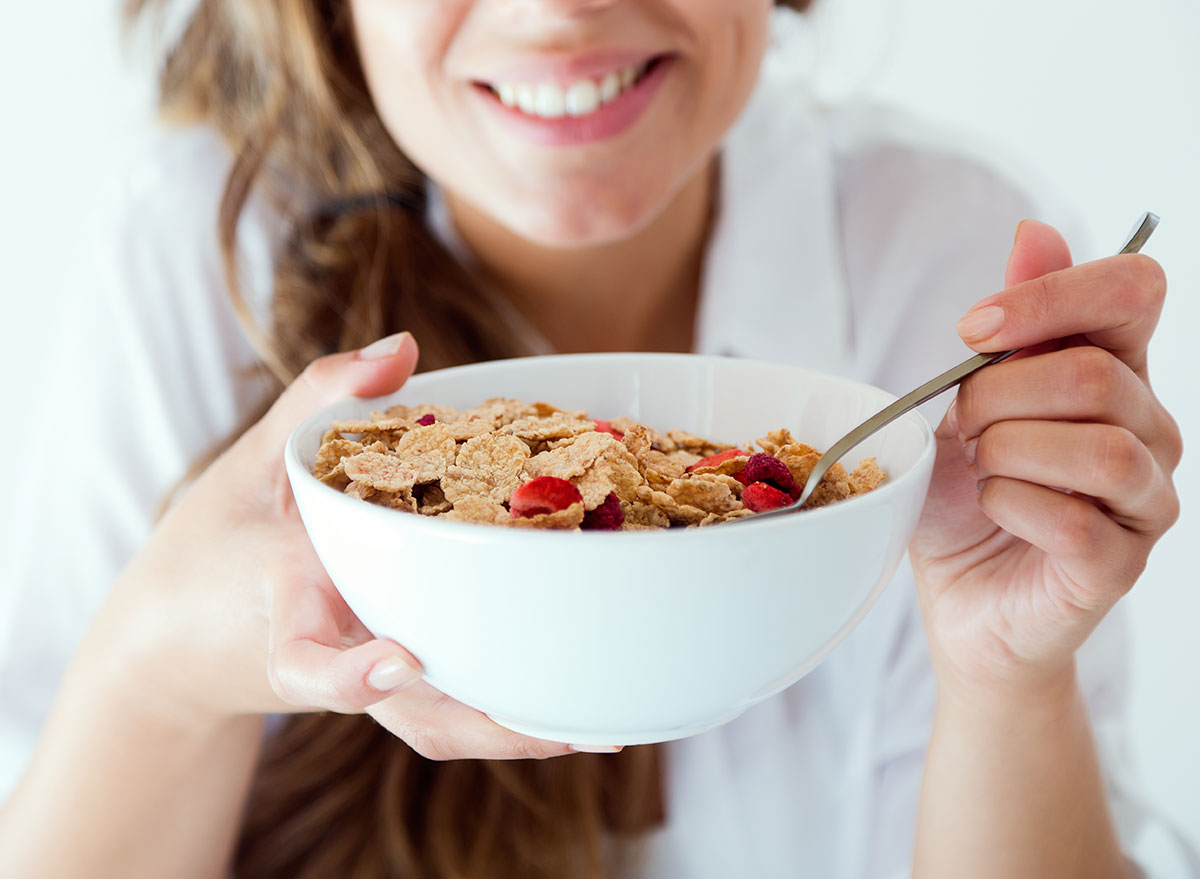
Over the past few years, the term "ultra-processed" has cast a shadow over numerous foods. When you hear this phrase, you may think of it as synonymous with "avoid at all costs." It's true, of course, that research has shown ultra-processed foods—which are known for high levels of processing, including added preservatives, sugars, flavors, and colors—are associated with multiple adverse health outcomes.
Most recently, a February 2024 review published in The BMJ examined 45 studies involving nearly 10 million people. It revealed a concerning connection between consuming excessive amounts of ultra-processed foods and 32 health conditions. The researchers identified "convincing" evidence linking ultra-processed food intake to cardiovascular disease-related mortality, type 2 diabetes, and anxiety, as well as "highly suggestive" evidence indicating a correlation to all-cause mortality.
But what doesn't often come through in the discussion is that some foods can go through several stages of processing and still be healthy. Certainly, high levels of processing are a red flag for a food's overall impact on your health. Still, a host of dietary choices retain their health benefits, even after undergoing a lengthy process from farm to table.
You might be surprised to learn that some foods labeled as "ultra-processed" are actually good for you. Here are eight examples.
Bread
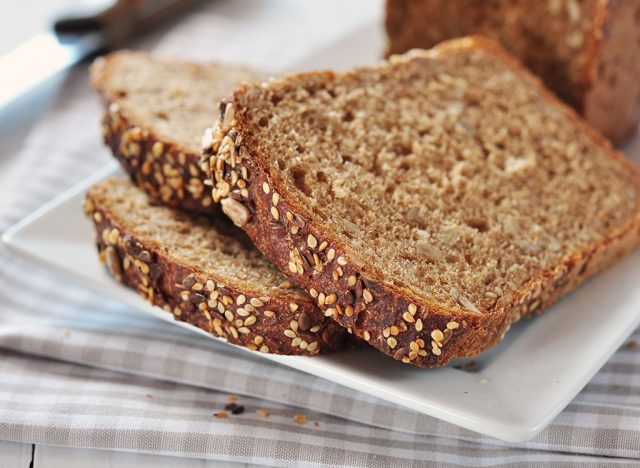
Bread: is it healthy or not? If ultra-processed food lists are to be believed, you might think store-bought bread is a no-no for your health, since it often contains fillers, preservatives, emulsifiers, and more. When made with whole grains, though, bread remains one of the healthiest foods around. Research shows that diets high in whole grains can help prevent type 2 diabetes, heart disease, and stroke.
Go against the ultra-processed grain by choosing a bread made primarily with whole wheat or other grains. (A whole grain like whole wheat as the first ingredient is a good sign.) Check out Dave's Killer Bread, for example, which offers tons of nutrient-dense whole-grain options for your sandwiches and toast.
Canned Soups
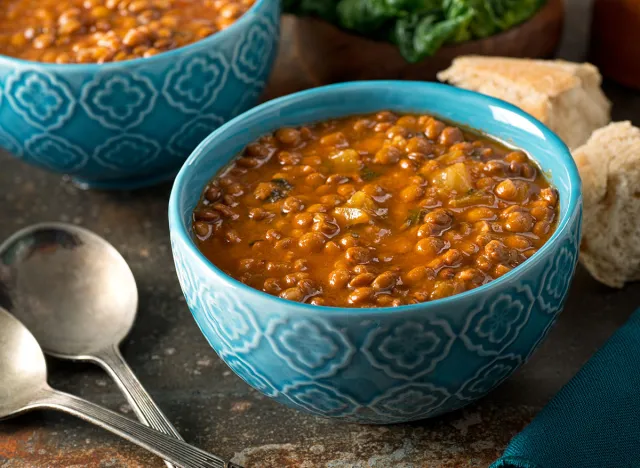
Canned foods have long suffered a stigma. They're too high in sodium, people say, and some (like creamy chowders and bisques) are loaded with saturated fat. But the canned soup blame game is a real shame. Not every can is equally ultra-processed—and not every can contains the same level of nutrition.
One option that's pleasantly low in sodium (not to mention loaded with veggies and plant-based protein) is Amy's Organic Lentil Soup. It provides just 12% of your daily sodium value in a 1-cup serving.
Granola Bars
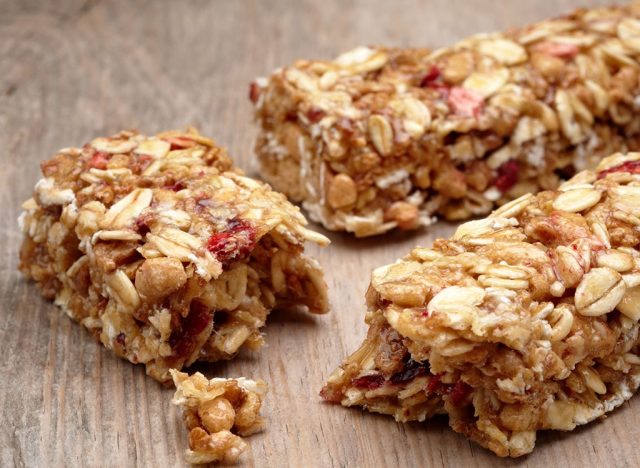
When made with whole grains like oats as their first ingredient (and with added sweeteners kept to a minimum), granola bars have plenty to offer in the health department. Look on the nutrition facts label for added sugars—7 grams or less per bar is a good target—and scan the ingredient list to see exactly what you're getting.
As a nutritionist, I'm a fan of Kind's Cinnamon Oat Bars. They're made with 22 grams of whole grains (including oats, millet, buckwheat, amaranth, and quinoa) and contain just 5 grams of sugar.
Mocktails

Sugar-sweetened beverages like canned cocktails fall squarely into the ultra-processed category. Fortunately, when you're craving a sweet, fizzy drink, you do have options for something with less sugar—and zero alcohol. Though canned mocktails may contain added sweeteners, coloring, or preservatives, many are a significantly healthier choice than neon-colored wine coolers or hard lemonades.
In fact, some mocktails are lower in sugar and calories than you might expect. My personal favorite is Mingle Mocktails. At just 60 calories and 11 grams of added sugar, they're a sweet sip you can feel good about.
Breakfast Cereal
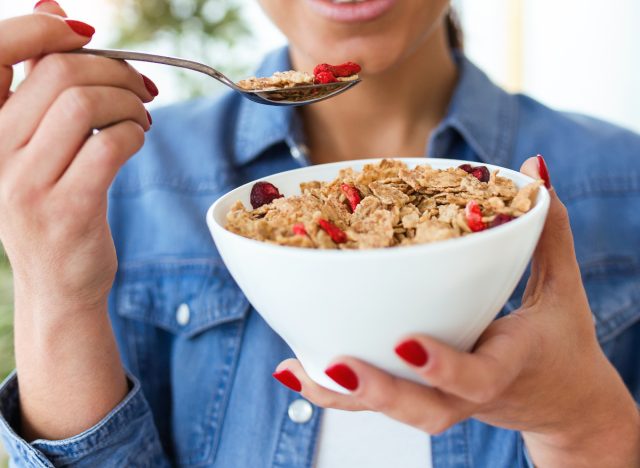
While some brands of breakfast cereals have classic harbingers of ultra-processing (like crazy-high amounts of sugar and boatloads of preservatives), others start your morning on a healthy note. Believe it or not, they can be a great place to get a hefty helping of your daily fiber, protein, and important micronutrients. For a packaged breakfast cereal with plenty of health perks, try Nature's Path's Multibran Flakes. It has 7 grams of fiber, 5 grams of protein, and just 5 grams of added sugar.
Frozen Meals
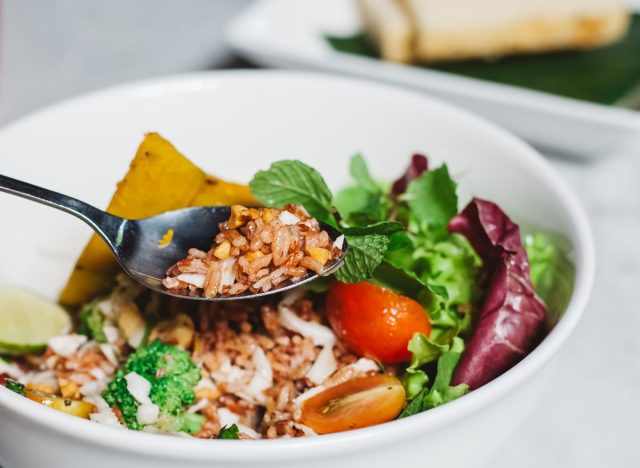
Many frozen meals justifiably get their ultra-processed reputation for their high content of sodium and other preservatives. But not every frozen meal on the market is a bad choice for your health. Some brands intentionally craft their recipes with minimal preservatives and short ingredient lists.
Take Daily Harvest, for example. Their frozen entrees, which range from grain bowls to soups to flatbreads, are packed with healthy organic ingredients like vegetables, lentils, and whole grains.
Jerky
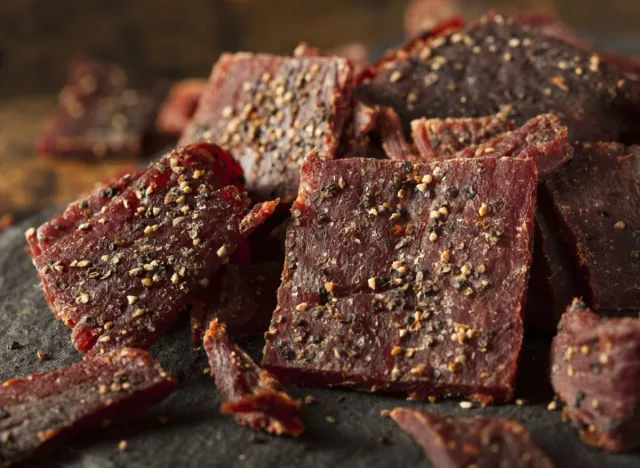
Sure, when loaded with salt and amped up with added sugars, flavored jerkies are definitely ultra-processed. That said, dried meat can be a healthy, high-protein snack. To choose a jerky that's less processed, look for brands with only a few ingredients. Or choose one made from salmon! Alaska Smokehouse offers salmon jerky that's high in heart-healthy omega-3 fats and uses all-natural ingredients.
Packaged Oatmeal
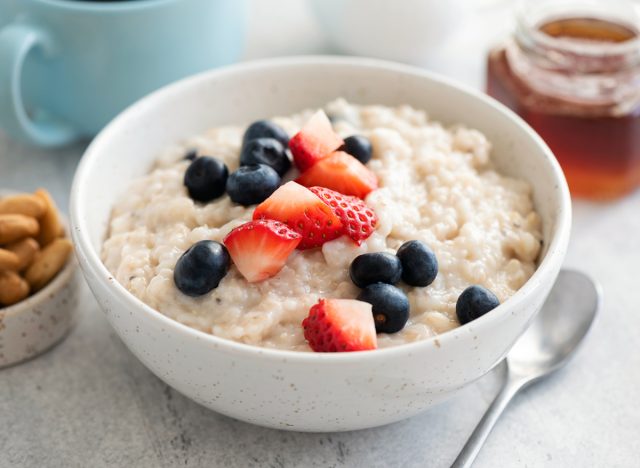
Oats are one of the healthiest foods on earth. Reaping their benefits is all about the way you prepare them. Skip the packaged oatmeals loaded with sugar and preservatives and opt for one that supplies ample fiber and protein (and doesn't go overboard on sugar). Need a rundown of the best brands? Check out our guide to the best and worst packaged oatmeals on grocery shelves.
- Source: Monteiro, C. A., Cannon, G., Levy, R. B., Moubarac, J. C., Louzada, M. L., Rauber, F., Khandpur, N., Cediel, G., Neri, D., Martinez-Steele, E., Baraldi, L. G., & Jaime, P. C. (2019). Ultra-processed foods: what they are and how to identify them. Public health nutrition, 22(5), 936–941. https://doi.org/10.1017/S1368980018003762
- Source: Hu, Y., Ding, M., Sampson, L., Willett, W. C., Manson, J. E., Wang, M., Rosner, B., Hu, F. B., & Sun, Q. (2020). Intake of whole grain foods and risk of type 2 diabetes: results from three prospective cohort studies. BMJ (Clinical research ed.), 370, m2206. https://doi.org/10.1136/bmj.m2206
- Source: Fang, L., Li, W., Zhang, W., Wang, Y., & Fu, S. (2015). Association between whole grain intake and stroke risk: evidence from a meta-analysis. International journal of clinical and experimental medicine, 8(9), 16978–16983.









